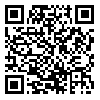Volume 20, Issue 2 (June 2022)
Iranian Rehabilitation Journal 2022, 20(2): 245-252 |
Back to browse issues page
Download citation:
BibTeX | RIS | EndNote | Medlars | ProCite | Reference Manager | RefWorks
Send citation to:



BibTeX | RIS | EndNote | Medlars | ProCite | Reference Manager | RefWorks
Send citation to:
Salam H. AL-Salih S, Jaber Muhbes F. Study of Nurses’ Knowledge About COVID-19 in Al-Hilla Teaching Hospitals. Iranian Rehabilitation Journal 2022; 20 (2) :245-252
URL: http://irj.uswr.ac.ir/article-1-1633-en.html
URL: http://irj.uswr.ac.ir/article-1-1633-en.html
1- Department of Nursing, Al-Mustaqbal University College (MUC), Babylon, Iraq.
Abstract: (4183 Views)
Objectives: The COVID-19 pandemic is a major health crisis that emerged at the end of the first quarter of the 21st century and changed the lives of millions of people globally. Nurses have close contact with infectious patients; therefore, nurses need to obtain sufficient knowledge in this regard. They need to assess their level of knowledge about COVID-19 and explore their needs to enhance and improve their knowledge in order to be more qualified to fight this virus. This study intends to assess nurses’ knowledge regarding COVID-19 and to find out the differences in nurses’ knowledge about COVID-19 with regard to their demographic variables.
Methods: A descriptive (cross-sectional design) study was conducted to assess nurses’ knowledge regarding COVID-19 in Al-Hilla teaching hospitals in Al-Hilla City, Iraq, from September 25, 2020, to February 20, 2022. Using a convenient sampling method, a sample of 200 nurses working at epidemic hospitals was selected. The data collection process began with a questionnaire, which nurses answered as a self-report (questionnaire). Then the questionnaires were collected from the respondents. The average time to fill out the questionnaire was between 10 and 20 minutes.
Results: The findings indicate that most nurses (58%) had poor knowledge about COVID-19. There were significant differences in nurses’ knowledge about COVID-19 with regard to their educational levels (P<0.05) and experience in epidemiological wards (P<0.05). Also, there was no difference between nurses’ attitudes toward COVID-19 with regard to their experience in epidemiological wards (P>0.05), but there was a significant difference between nurses’ knowledge about COVID-19 with regard to their source of information about COVID-19 (P<0.05).
Discussion: The present study revealed that nurses had moderate knowledge about COVID-19. They had poor knowledge related to the prevention of COVID-19, while they had poor knowledge as overall knowledge related to COVID-19.
Methods: A descriptive (cross-sectional design) study was conducted to assess nurses’ knowledge regarding COVID-19 in Al-Hilla teaching hospitals in Al-Hilla City, Iraq, from September 25, 2020, to February 20, 2022. Using a convenient sampling method, a sample of 200 nurses working at epidemic hospitals was selected. The data collection process began with a questionnaire, which nurses answered as a self-report (questionnaire). Then the questionnaires were collected from the respondents. The average time to fill out the questionnaire was between 10 and 20 minutes.
Results: The findings indicate that most nurses (58%) had poor knowledge about COVID-19. There were significant differences in nurses’ knowledge about COVID-19 with regard to their educational levels (P<0.05) and experience in epidemiological wards (P<0.05). Also, there was no difference between nurses’ attitudes toward COVID-19 with regard to their experience in epidemiological wards (P>0.05), but there was a significant difference between nurses’ knowledge about COVID-19 with regard to their source of information about COVID-19 (P<0.05).
Discussion: The present study revealed that nurses had moderate knowledge about COVID-19. They had poor knowledge related to the prevention of COVID-19, while they had poor knowledge as overall knowledge related to COVID-19.
Article type: Original Research Articles |
Subject:
Nursing
Received: 2022/03/19 | Accepted: 2022/04/12 | Published: 2022/06/1
Received: 2022/03/19 | Accepted: 2022/04/12 | Published: 2022/06/1
Send email to the article author








